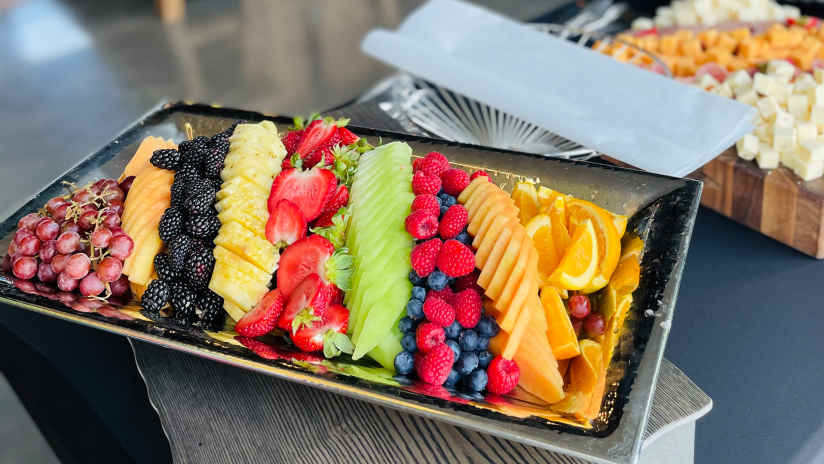As a young athlete, it’s difficult to know exactly what to put into your body before a match. Every article and social media video says something different, and sifting through all that conflicting advice can be both confusing and discouraging. How do you balance carbs and protein? How do you make sure you’re full, but not too full? MNUFC first-team dietitian Sydney Daley is here to give you some advice on getting the most out of your pre- and post-match meals so that you can fuel up and perform your best.
Pre-Match Meal: The Performance Plate
The pre-match meal is the last full meal you’ll eat before you play a game, and it’s not something you should ever skip. This is the best time to fuel up on macronutrients (carbohydrates, protein, and fat) to give your body enough energy to get through a whole match.
When to Eat: Ideally, you should eat your pre-match meal three to four hours before the start of your game. This gives you enough time to digest and avoid feeling too full on the field while still reaping the benefits of all those macronutrients.
What to Eat: There are three main components to a performance plate that you’ll want to check off on gameday.
- Carbohydrate-rich foods. These should make up half of your plate. Stick to foods that are easy to digest, and be sure to avoid too much fiber. This is a great time for white rice or pasta, potatoes, bread, tortillas, fruit, etc.
- Lean proteins should make up a quarter of your performance plate. It’s important to choose leaner cuts of protein — chicken breast, white fish, sirloins, tenderloins, lean ground meats — since fat is more difficult to digest and could cause stomach issues while you’re playing.
- Color. The last quarter of your plate should be made up of fruits and vegetables. The benefits of these food groups are widespread — hydration, vitamins, antioxidants — but make sure not to eat too much of them, because they can also increase the intake of fiber, which is harder to digest.
Post-Match Meal: The Recovery Plate
You did it! You played a great game, and now you’re ready to rest up. Make sure not to skip your post-match meal. This is integral to starting your body’s recovery, repairing muscles, and replenishing all that energy you expended during the game.
When to Eat: Try to eat your post-match meal within one to two hours of the end of your match. If it has to be longer than one hour, try to fit in a quick snack after the game to give yourself a head start on recovery.
What to Eat: The biggest thing to focus on here is making sure you get enough. Your body burns a lot of energy during a game, and this is your first real opportunity to supply it with enough calories to make up for those losses. In addition to that benchmark, make sure to cover the three “Re’s” of the recovery meal:
- Replenish muscle glycogen with plenty of quality carbohydrates. Remember what we talked about for your pre-match meal: rice, pasta, bread, etc.
- Rebuild muscle tissue with protein. Keep dietary fat on the moderate-to-low end to help prevent an upset stomach.
- Rehydrate with fluids. Make sure to drink plenty of water, and don’t forget about electrolytes.
Fruits and vegetables earn you bonus points for their power to reduce muscle soreness and help with recovery. Now, ready for your next match?

